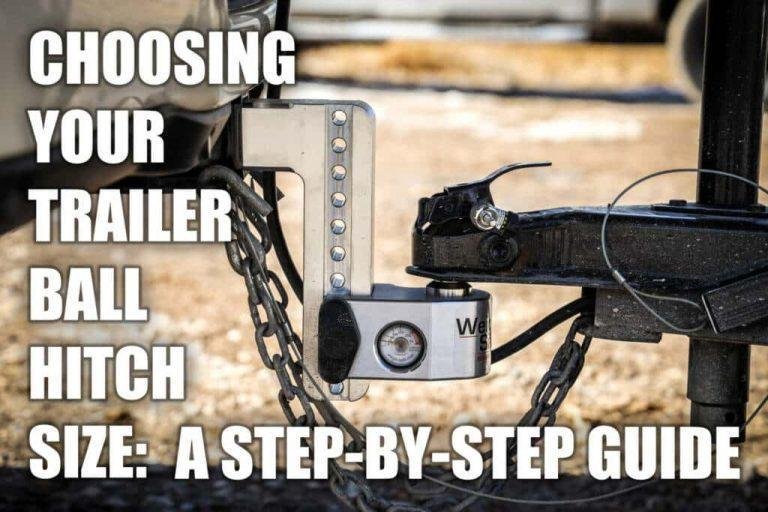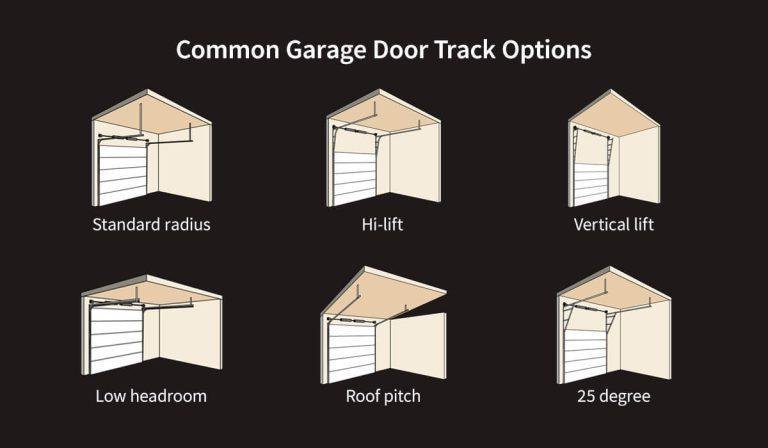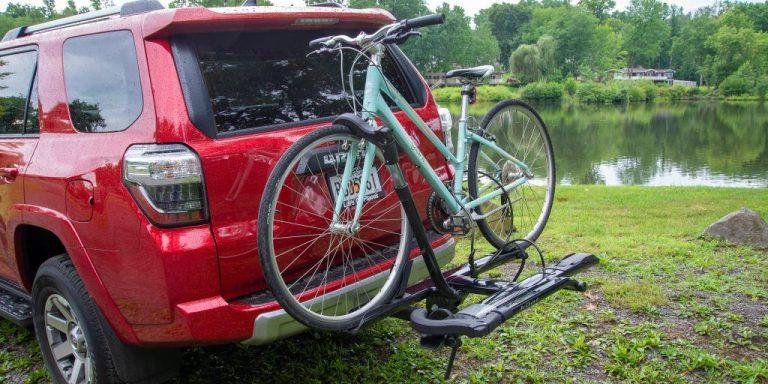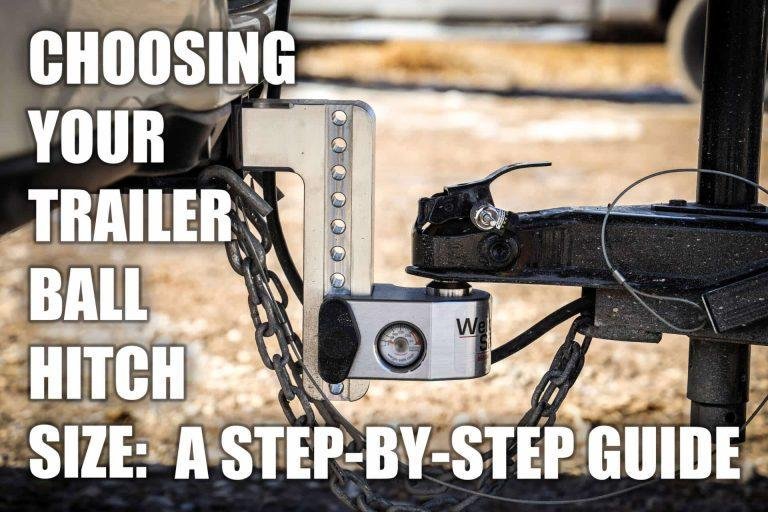To determine the proper winch size, calculate your vehicle’s gross vehicle weight rating (gvwr) and choose a winch with a pulling capacity at least 1.5 times the gvwr. When selecting a winch, it is essential to consider the weight of your vehicle and any additional load you may be carrying.
The winch’s pulling capacity should be at least 1. 5 times the gvwr to ensure sufficient power for recovery operations. By calculating the gvwr and choosing a winch with the appropriate capacity, you can confidently select the right size winch for your vehicle’s needs.
Bear in mind that disregarding this factor might lead to inefficient or ineffective winch performance when faced with demanding situations such as steep inclines or deep mud. Stay prepared for any off-road adventures by using the correct winch size for your vehicle.

Credit: gearjunkie.com
Understanding The Role Of Winch Size
Understanding the role of winch size is crucial when determining the right one for your needs. Consider factors such as the weight of the load and the towing capacity of your vehicle to ensure you choose the appropriate winch size.
Choosing the right winch size for your vehicle is crucial when it comes to safe and effective vehicle recovery. The winch size determines the pulling power and performance of the winch, making it essential to understand its impact. In this section, we will explore the importance of winch size for vehicle recovery and how it affects the winch’s overall performance.
Importance Of Winch Size For Vehicle Recovery:
- Adequate pulling power: A winch with the right size ensures that you have enough pulling power to recover your vehicle from challenging situations such as mud, sand, or steep inclines.
- Load capacity: Winch size directly influences the load capacity of the winch. It is crucial to choose a winch with a sufficient load capacity that matches the weight of your vehicle.
- Safety: Opting for the correct winch size ensures safety during vehicle recovery operations. A winch that is too small may strain under the load or fail to provide enough force to pull your vehicle out of a difficult situation.
- Efficiency: By selecting an appropriately sized winch, you can efficiently recover your vehicle without exerting unnecessary strain on the winch motor and other components. This improves the overall lifespan and performance of your winch.
How Winch Size Affects Performance:
- Pulling speed: A larger winch with a higher pulling capacity generally pulls at a faster speed than a smaller winch. The size difference directly affects the gear ratio and the winch motor’s power, resulting in varying speeds of recovery.
- Line speed: The winch size determines the line speed at which the winch can reel in the cable. A larger winch will typically have a higher line speed, allowing for quicker recovery.
- Heat dissipation: Larger winches generally have better heat dissipation capabilities due to their larger motors and more substantial construction. This allows them to handle extended use without overheating, ensuring reliable performance.
- Durability: A properly sized winch is less likely to experience premature wear and tear. By selecting the correct size, you can ensure that the winch handles the load effectively, minimizing strain on the motor and other internal components.
Understanding the role of winch size is crucial when choosing the right winch for your vehicle recovery needs. By considering the importance of winch size for vehicle recovery and how it affects performance, you can make an informed decision that maximizes safety, efficiency, and overall performance.
Assessing Your Vehicle’S Requirements
Assessing your vehicle’s requirements for a winch size is crucial. Consider factors such as weight capacity, vehicle type, and intended use before determining the right winch size for your needs.
When it comes to choosing the right winch size for your vehicle, assessing your vehicle’s requirements is crucial. By considering factors such as the weight of your vehicle and other important considerations, you can determine the ideal winch size to handle your specific needs.
Let’s dive into this assessment process to ensure you make an informed decision.
Determine The Weight Of Your Vehicle
To start, it’s essential to determine the weight of your vehicle. This information can be found in your vehicle’s owner manual or by consulting the manufacturer’s specifications. Knowing the weight is crucial as it directly impacts the winch size required to perform the desired tasks effectively.
Here’s how you can go about it:
- Locate your vehicle’s owner manual or look up the manufacturer’s specifications online.
- Identify the gross vehicle weight rating (gvwr) or the curb weight of your vehicle.
- If your vehicle has any aftermarket modifications, such as larger tires or added accessories, account for their weight as well.
Factors To Consider When Choosing Winch Size
When choosing the appropriate winch size, several factors must be considered. By understanding these factors, you can ensure that you select a winch with adequate pulling power to handle potential scenarios. Here are the key factors to keep in mind:
- Intended use: Determine how you plan to use your winch. Whether it’s for light recovery or heavy-duty applications, the winch size should match your usage requirements.
- Vehicle type: Different vehicle types have varying weights and power requirements. Consider the type of vehicle you have, whether it’s a truck, suv, atv, or another type, to determine the appropriate winch size.
- Weight capacity: Refer to the weight of your vehicle and choose a winch with a weight capacity that exceeds it. It is advisable to opt for a winch with a capacity of at least 1.5 times the weight of your vehicle for reliable performance.
- Terrain and conditions: Evaluate the terrain and weather conditions you commonly encounter. Off-roaders and those who frequently venture into extreme environments may require a more robust winch to handle challenging situations.
By taking into account these factors and correctly assessing your vehicle’s requirements, you can make an informed decision when choosing the right winch size. Remember, it’s always better to have a winch with slightly more power than you may think you need, as it provides an additional safety margin.
So, put careful thought into selecting the appropriate winch size and enjoy the peace of mind knowing you have the right tool for the job.
Calculating The Right Winch Size
Choosing the right winch size is crucial for optimal performance. Calculate the necessary winch size based on your vehicle’s weight and intended usage to ensure you have the power you need for any situation.
Understanding Pull Capacity And Line Speed
- Pull capacity refers to the maximum weight a winch can handle, while line speed determines how quickly the winch can retrieve the load. These two factors are crucial in determining the appropriate winch size for your needs.
- The pull capacity you require depends on the heaviest load you expect to pull. It is important to note that your winch’s pull capacity should be at least 1.5 times the weight of your vehicle. This ensures that the winch can handle unexpected obstacles and off-road conditions effectively.
- Line speed is also a crucial consideration. A faster line speed is preferable when time is of the essence, or when dealing with larger loads. On the other hand, a slower line speed may be more suitable for intricate or delicate recoveries.
- Consider the intended use of your winch. If you frequently go off-roading, engage in heavy-duty towing, or encounter challenging recovery situations, a winch with a higher pull capacity and faster line speed might be ideal. However, for occasional light-duty use, a smaller winch might suffice.
- It is crucial to strike a balance between pull capacity and line speed to ensure optimal performance and safety. The right winch size depends on your vehicle weight, intended use, and potential recovery scenarios.
Matching Winch Size To Vehicle Weight And Intended Use
- Evaluating your vehicle weight is essential in determining the appropriate winch size. A general rule of thumb is to select a winch with a pull capacity of at least 1.5 times the weight of your vehicle. This ensures sufficient power to handle unexpected challenges and provide a safety margin.
- Assess the typical scenarios in which you will use the winch. If you often traverse rough terrains or participate in off-road adventures, a winch with a higher pull capacity and faster line speed is advisable. It can handle demanding conditions and recover heavier vehicles more efficiently.
- Conversely, if you primarily engage in light-duty activities, such as light towing or occasional recovery situations, a winch with a lower pull capacity may be suitable. This option can save you both cost and weight, without compromising performance within your specific needs.
- Keep in mind that choosing a winch with too small a capacity can limit its effectiveness and potentially lead to damages or safety concerns. Overloading a winch can strain its motor, line, and other components, risking failure or accidents. Therefore, it is vital to accurately assess your vehicle weight and intended use before selecting the appropriate winch size.
Remember, understanding the pull capacity and line speed of a winch is crucial to select the right size for your needs. Balance your vehicle weight, intended use, and potential recovery scenarios to ensure optimal performance and safety.
Exploring Different Winch Sizes
Choosing the right winch size is crucial for optimal performance. Consider factors like the weight of your vehicle or the intended use to determine the winch size you need. Make an informed decision to ensure efficient and reliable operation.
If you’re in the market for a new winch, one of the most important factors to consider is the size. Choosing the right winch size is crucial to ensure that it can handle your vehicle’s weight and meet your towing needs.
In this section, we will explore the different winch sizes available and which vehicles they are best suited for. Read on to find the perfect winch size for your atv, utv, jeep, suv, truck, or heavy-duty vehicle.
Small Winches For Atvs And Utvs:
- These winches have a smaller capacity, typically ranging from 2,000 to 4,000 pounds.
- Ideal for atvs and utvs used for recreational purposes or lighter loads.
- Perfect for off-road adventures, pulling your vehicle out of mud, or hauling small loads.
Medium Winches For Jeeps And Suvs:
- With a capacity range of 6,000 to 9,000 pounds, medium winches are a popular choice for jeeps and suvs.
- Suitable for vehicles used for both off-roading and daily driving.
- Can handle moderate tow loads, making them versatile for various towing needs.
Large Winches For Trucks And Heavy-Duty Vehicles:
- Heavy-duty vehicles such as trucks and large suvs require winches with greater pulling power.
- Large winches typically have a capacity range of 10,000 pounds and above.
- Designed for demanding towing requirements, such as pulling heavy loads or recovering stuck vehicles.
Remember, choosing the right winch size is essential to ensure both safety and efficiency when towing or recovering vehicles. Consider the weight of your vehicle and the tasks you will be performing to determine the most suitable winch size.
Considerations For Off-Road Adventures
Choosing the right winch size for off-road adventures is crucial. Consider factors like the weight of your vehicle, the terrain you’ll be tackling, and the pulling capacity you require. Making an informed decision will ensure you have a winch that can handle the challenges you may encounter on your off-road journeys.
Off-roading can be an exhilarating adventure, but it also comes with its fair share of risks and challenges. When heading off the beaten path, having a reliable winch can make all the difference in ensuring a safe and successful recovery.
In this section, we will explore the considerations for off-road adventures and guide you in choosing the right winch size for extreme conditions.
Understanding The Demands Of Off-Road Recovery:
Off-road recovery situations can vary greatly, and it’s crucial to understand the demands you may face. Here are some factors to consider:
- Terrain: Off-road trails can present a range of terrains, such as mud, sand, or rocky surfaces. Each type requires different pulling power from your winch.
- Weight of your vehicle: The weight of your vehicle, including any modifications or added accessories, should be taken into account when selecting a winch. This ensures that the winch has enough power to handle the load.
- Recovery angles: Off-road recovery often involves navigating steep inclines or unpredictable angles. You need a winch that can handle the stress of these angles without compromising its pulling performance.
- Frequency of off-road adventures: If you frequently engage in off-road adventures, you may need a heavier-duty winch to withstand repeated use and demanding conditions.
Choosing The Right Winch Size For Extreme Conditions:
Selecting the appropriate winch size for extreme off-road conditions is crucial for a successful recovery. Here are some key points to consider:
- Winch capacity: The winch capacity determines the maximum weight it can safely pull. It is recommended that you choose a winch with a capacity at least 1.5 times the gross vehicle weight (gvw) of your vehicle.
- Power source: Ensure that your vehicle’s electrical system is capable of handling the power requirements of the winch. If not, you may need to invest in an upgraded battery or a dual-battery setup.
- Line length: Consider the distance you may need to cover during a recovery operation. A winch with a longer line length allows for greater flexibility in choosing an anchor point.
- Synthetic or steel cable: Decide between synthetic rope or steel cable, taking into account factors such as strength, durability, and weight. Synthetic rope is lightweight and easier to handle, while steel cable has excellent strength but is heavier.
- Waterproofing: Off-road adventures often involve encountering water crossings or muddy conditions. Opt for a winch that is waterproof or has adequate protection against moisture and dirt.
By understanding the demands of off-road recovery and carefully considering these factors, you can confidently choose the right winch size for your extreme off-road adventures. Remember, safety should always be a priority, and having the appropriate equipment can make all the difference when facing challenging situations.
Weight Vs. Power: Finding The Balance
Finding the right winch size is crucial for achieving the right balance between weight and power. Discovering the perfect match will ensure optimal performance in towing and recovery tasks without compromising efficiency.
The Impact Of Winch Weight On Your Vehicle
- A winch is a powerful tool that can assist in various off-roading situations, such as recovering stuck vehicles or pulling heavy loads. However, it’s important to consider the weight of the winch itself and its potential impact on your vehicle’s performance. Here are some key points to keep in mind:
- Winch weight: A winch can range in weight from 50 lbs to over 100 lbs, depending on its size and capacity. This additional weight can have several implications for your vehicle:
- Added strain on suspension: The extra weight of the winch can put stress on your vehicle’s suspension system. It may cause the suspension to compress more than usual, affecting the vehicle’s overall ride quality and stability.
- Impact on fuel efficiency: The added weight of the winch can increase the fuel consumption of your vehicle, especially during off-road adventures where extra power is required.
- Front end sag: The weight of the winch can cause the front end of your vehicle to sag, altering its balance and potentially compromising the handling.
- Overloading the front axle: Excessive weight on the front of your vehicle can overload the front axle, leading to premature wear and tear on various components.
Balancing Power And Weight For Optimal Performance
- Finding the right balance between power and weight is crucial for maximizing the performance and functionality of your winch. Consider the following factors when selecting the appropriate winch size:
- Vehicle weight: Determine the weight of your vehicle, including any modifications or additional accessories. This will help you understand the power needed to effectively recover your vehicle or handle heavy loads.
- Winch capacity: Take into account the winch’s maximum capacity, which should be able to handle at least 1.5 times the weight of your vehicle. This ensures that the winch has sufficient power to pull your vehicle out of challenging situations.
- Consider the terrain: If you frequently navigate through steep inclines or rough terrains, it’s advisable to opt for a winch with slightly higher pulling capacity. This accounts for the increased resistance in such conditions.
- Safety margins: It’s always better to choose a winch with a higher capacity than strictly required. This not only ensures reliability but also prevents strain on the winch itself.
- Compatibility: Ensure that the winch you choose is compatible with your vehicle’s mounting system. Consider factors like size, shape, and location of the winch mounting points.
- Seek professional advice: If you’re unsure about selecting the right winch size, consult with a reputable off-roading expert or a dealer with experience in winch installations.
Remember, finding the right balance between power and weight is essential to ensure optimal performance and longevity of your winch. Take the time to carefully assess your vehicle’s needs and choose a winch that meets those requirements without compromising on safety or functionality.
Common Mistakes To Avoid
Determining the right winch size can be overwhelming, but avoiding common mistakes is crucial. With careful consideration and understanding of your needs, you can choose the appropriate winch size for your specific requirements.
When it comes to purchasing a winch, it’s important to select the right size for your needs. However, many people make common mistakes that can lead to either underestimating the vehicle’s weight or overspending on an excessive winch size. In order to ensure you choose the correct winch size, here are some mistakes to avoid:
- Underestimating the vehicle’s weight:
- Ignoring the weight of additional equipment or accessories: It’s crucial to consider the total weight of your vehicle, along with any accessories, modifications, or gear that may increase its weight. Failing to account for these extra pounds can result in choosing an inadequate winch size.
- Neglecting to check the vehicle’s specifications: Every vehicle has a maximum weight capacity, which should be considered when selecting a winch. Make sure to review the manufacturer’s specifications or consult your vehicle’s manual to determine the accurate weight.
- Overspending on excessive winch size:
- Not assessing your specific needs: Before making a purchase, evaluate your typical off-road activities and recovery scenarios. Consider factors such as terrain, weather conditions, and the typical weight of vehicles you plan to recover. Overspending on a winch with excessive pulling power could be unnecessary and cost you more money.
- Overlooking the winch’s power requirements: A larger winch will require more power from your vehicle’s electrical system. If your vehicle’s electrical capacity is insufficient to handle the demands of a bigger winch, you’ll need to invest in additional upgrades. This oversight can lead to unnecessary expenses and complications.
Remember, finding the right winch size involves careful consideration of your vehicle’s weight and your specific recovery needs. Avoiding these common mistakes will help you make a well-informed decision, ensuring you have a winch that’s both reliable and cost-effective.
Frequently Asked Questions On What Winch Size Do I Need?
How Big Of A Winch Do I Really Need?
To determine the size of the winch you need, consider the weight of your vehicle and the situations you’ll encounter. A general rule of thumb is to select a winch with a capacity 1. 5 times the weight of your vehicle.
For smaller vehicles, a winch with a capacity of 8,000 lbs is usually sufficient. Mid-sized trucks and suvs will benefit from a winch with a capacity of 10,000-12,000 lbs. For larger vehicles or off-road rigs, a winch in the 12,000-16,500 lbs range is recommended.
Keep in mind that heavier winches may require modifications to your vehicle, such as reinforced bumpers or winch mounts. It’s always better to choose a winch with slightly higher capacity than you think you’ll need, as it provides a safety margin in case of unforeseen circumstances or tougher conditions.
How Much Weight Can A 3000 Lb Winch Pull?
A 3000 lb winch can pull up to 3000 pounds of weight. It is important to note that the pulling capacity of a winch is determined by its weight rating. Therefore, a winch with a 3000 lb capacity is designed to handle loads up to 3000 pounds.
It is crucial to follow the manufacturer’s guidelines and not exceed the maximum weight limit to ensure safe operation. Remember to consider factors like incline, friction, and the condition of the winch and its components when calculating the actual pulling capacity.
Is A 9500 Lb Winch Big Enough?
Yes, a 9500 lb winch is big enough for most off-roading and recovery purposes. It offers sufficient pulling power to handle common heavy-duty tasks, like recovering vehicles stuck in mud or pulling them out of ditches. With a capacity of 9500 lbs, this winch should be capable of handling the weight of most suvs, trucks, and jeeps.
Its power is suitable for off-road enthusiasts and professionals working on tough terrains. However, it’s important to consider the weight of your vehicle and any additional load when selecting a winch. If your vehicle is particularly heavy, or if you plan on frequently carrying heavy loads, you may want to consider a winch with a higher capacity.
Always check the specifications and guidelines provided by the winch manufacturer to ensure proper usage and safety.
How Big Of A Winch Do I Need To Pull A Car On A Trailer?
To pull a car on a trailer, choose a winch with a capacity equal to or greater than the car’s weight. Determine the car’s weight by checking the user manual or consulting the manufacturer. Assess whether your winch needs to handle additional loads, such as fuel or cargo, and consider that as well.
Opt for a winch with a higher capacity to accommodate any potential increase in weight. Remember to account for any steep inclines or off-road conditions that could impede the pulling process. By selecting a winch with the appropriate capacity, you can ensure a smooth and efficient towing experience.
Conclusion
Finding the right winch size for your needs is crucial in ensuring efficient and effective operation. From small recreational hobbyists to large-scale industrial applications, determining the appropriate winch size can save you from unnecessary expenses and potential equipment failures. By considering factors such as the weight of your load, the distance it needs to be pulled, and the terrain conditions, you can select a winch that matches your requirements perfectly.
It’s important to note that choosing a winch with a higher capacity than necessary offers added safety and versatility for future use. However, picking an undersized winch can lead to performance issues and even damage the winch itself. With the plethora of winch sizes available in the market, take the time to assess and analyze your specific needs to make an educated decision.
By doing so, you will ensure that your winching tasks are completed effortlessly and efficiently, saving you time, money, and unnecessary stress.






